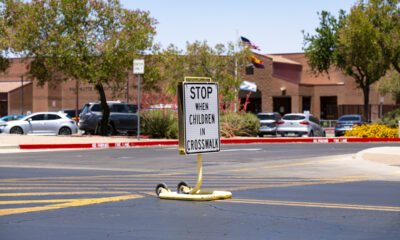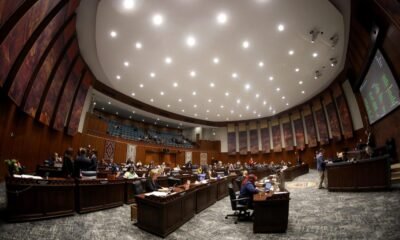Business
Prop. 312: New Measure Seeks to Hold Cities Accountable for Homeless-Induced Damage

PHOENIX — The ongoing homelessness crisis has prompted a significant legislative proposal in Arizona. Republican lawmakers are now advocating for legislation that would impose financial liabilities on local governments if property owners report expenses due to a lack of enforcement of various ordinances. This includes issues like illegal camping, loitering, and public defecation.
While “The Zone,” a notorious area in downtown Phoenix known for homelessness, has been dismantled, discussions surrounding this law are heating up. Despite lobbying efforts from city officials urging lawmakers to reconsider placing this measure on the November ballot, the momentum continues. They argue that previous legal precedents limited local enforcement capabilities.
The U.S. Supreme Court’s recent reversal of a federal appeals court ruling has allowed this new proposal to gain traction. Critics of the proposal, however, contend that funds allocated under this measure might be better spent on services designed to assist the homeless, rather than penalizing local governments.
The proposed law, known as Proposition 312, has garnered mixed responses. Some business sectors support it, citing financial losses attributed to homeless encampments. While the measure does not explicitly allow claims for lost revenue, it does provide property tax relief to mitigate expenses related to maintaining property affected by public nuisances.
There is ambiguity in how “expenses incurred” will be defined, potentially covering costs from security measures to cleanup efforts. Property owners would be enabled to file for tax refunds based on documented expenses annually, assuming they face local nuisance issues.
Central to this discussion are policies that allow cities to ignore certain laws. This includes prohibitions against blocking sidewalks and public intoxication. If a property owner claims nuisance damages, they can present their case to the state’s Department of Revenue, which may intervene if the local government does not respond.
House Speaker Ben Toma emphasized the necessity of this legislation, associating rising homelessness with lax enforcement of laws relating to public order. The enforcement of these laws, he argued, is critical to public safety and hygiene across communities.
The legislative hearings vividly showcased the urgency; Toma highlighted Phoenix’s troubling experience with “The Zone,” a site identified as a hotspot for homelessness that drew a significant police presence for cleanup actions initiated by nearby property owners.
The proposal aims to alleviate the responsibilities local governments have neglected, ensuring taxpayers are not burdened by unsafe conditions. Originally, the legislation also contemplated compensating property owners for decreased property values, but that was excluded due to concerns surrounding evaluation processes.
Sen. Justine Wadsack voiced her support for those struggling in municipalities outside Phoenix, like Tucson, where public safety significantly deteriorated due to homeless issues. She recounted distressing incidents where local businesses were assaulted and damaged.
Opponents of the measure argue it oversimplifies a complex issue. Attorneys representing city interests have warned that rather than offering solutions to homelessness, this legislation could lead to further litigation and strain on resources needed for functional shelters.
The broader discussion reflects ongoing debates about local governance, community welfare, and the necessity for comprehensive solutions addressing homelessness. The conversation includes calls for increasing housing affordability and support services, instead of punitive measures against local governments.


















